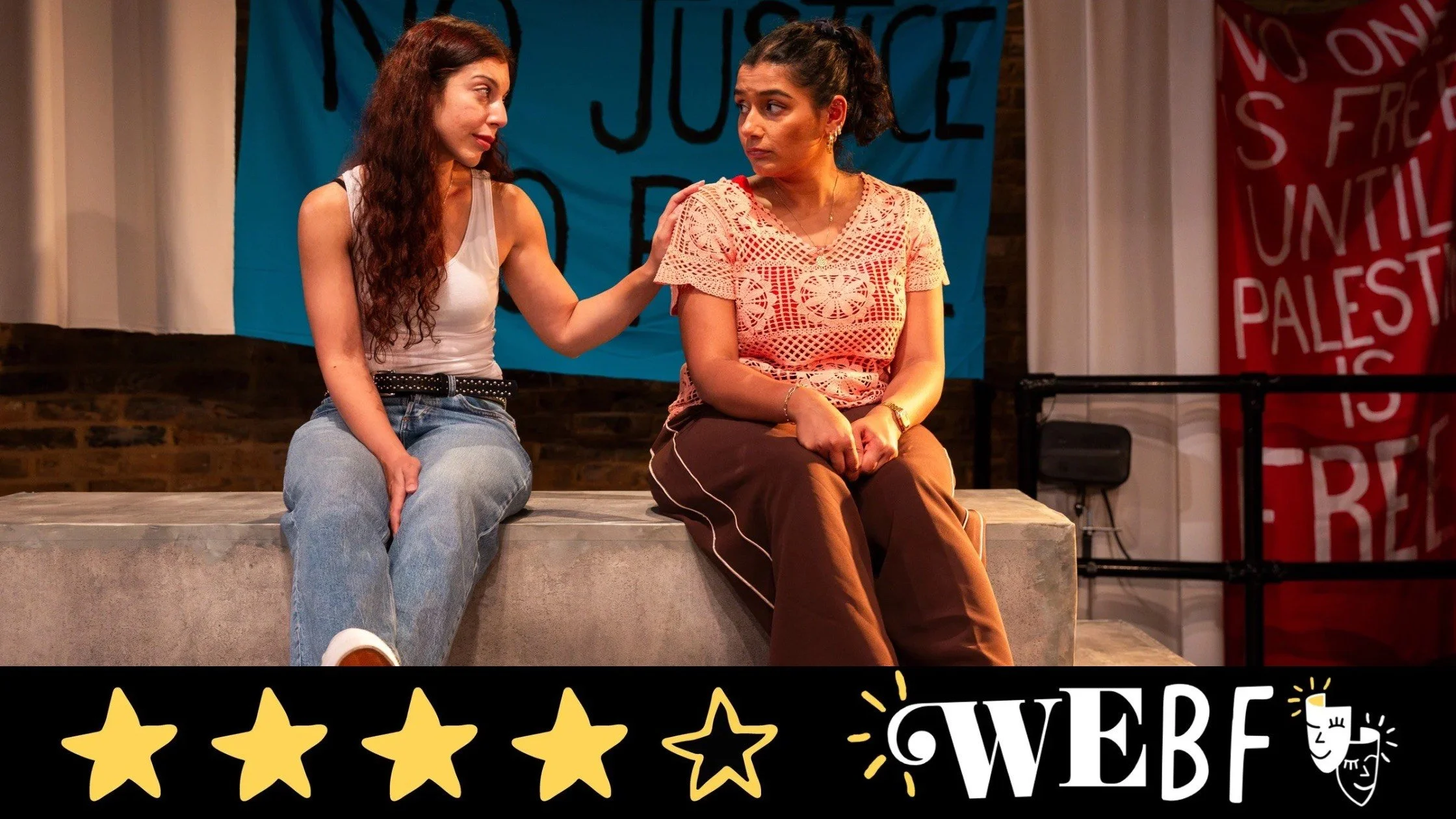Review: PERMISSION, Tara Theatre
Photo credit: Adam Razvi
We meet best friends Hanna (Anisa Butt) and Minza (Rea Malhotra Mukhtyar) on a rooftop in Karachi. Hanna and her boyfriend Umer (Asfandyar Khan) have just bribed a policeman with Umer’s watch after being caught together in public. Hanna, ambitious and eager to make a difference, dreams of studying at university in London. Minza, meanwhile, plans to stay and attend Karachi University, believing that real change starts at a grassroots level.
To Hanna’s delight, she gets into her dream university and leaves for London. We follow her from immigration queues at Heathrow to her student halls, where she meets Anushe: a politically engaged third-year British Pakistani student. Hanna is drawn to Anushe’s confidence and conviction. She sees her as everything she’s not and everything she wants to be. Anushe takes Hanna under her wing, helping her adjust to life in London and encouraging her to step out from under her family’s shadow.
Just as Hanna begins to find her feet, her private photos- sent in confidence to Umer - are leaked online. Shaken and humiliated, she begins ignoring calls from her worried parents and neglects university life. Anushe encourages her to reconsider what freedom and agency mean beyond cultural and familial expectations. “Nobody gives you freedom – you just kinda have it,” she tells her.
Inspired, Hanna joins student protests against her university’s investments in arms companies funding global conflicts. But Anushe, while bold, is also pragmatic: she warns Hanna that if she’s arrested, her student visa could be revoked and deportation would be inevitable. It raises a crucial question: while protest may be one of the most visible tools for change, who really has the right or privilege to protest without fear of serious consequence?
Despite warnings from both Anushe and Minza, Hanna attends the protest. She is suspended by the university for “inciting violence” and her visa is cancelled, giving her two weeks to leave the UK. Devastated, she calls her father, seeking forgiveness and a way home.
Back in Karachi, presumably having reconciled with her family, Hanna returns to Minza’s rooftop. She learns that Minza, too, has been protesting – injured during the Aurat March by counter-protesters. Minza offers a necessary reality check, asking Hanna to acknowledge the financial and cultural privilege that allowed her to leave and return on her own terms.
Butt and Mukhtyar deliver layered, honest performances, anchoring the story in the powerful resilience and strength of female friendship. Their dynamic brings emotional depth, humour and authenticity to the stage.
There are moments that don’t fully land such as Hanna caught smoking weed that seems to carry no narrative consequence, leaving us unsure of its purpose. While the decision to centre women’s voices through live performance and relegate the male characters to voiceovers is effective in theory, the overuse of voiceover can sometimes break the immersion the production works so hard to create.
The play raises important questions about dissent, identity, and the cost of freedom - especially for those living between cultures, systems, and borders. It reminds us that protest doesn’t look the same for everyone, and cannot be judged by a single measure. While not all its bold ideas are fully realised, Hunia Chawla’s Permission is a brave, necessary piece (especially right now) and is a vital step in the right direction.
**** Four stars
Reviewed by: Aleeza Humranwala
Permission plays at Tara Theatre until 7 June, with further info here.


